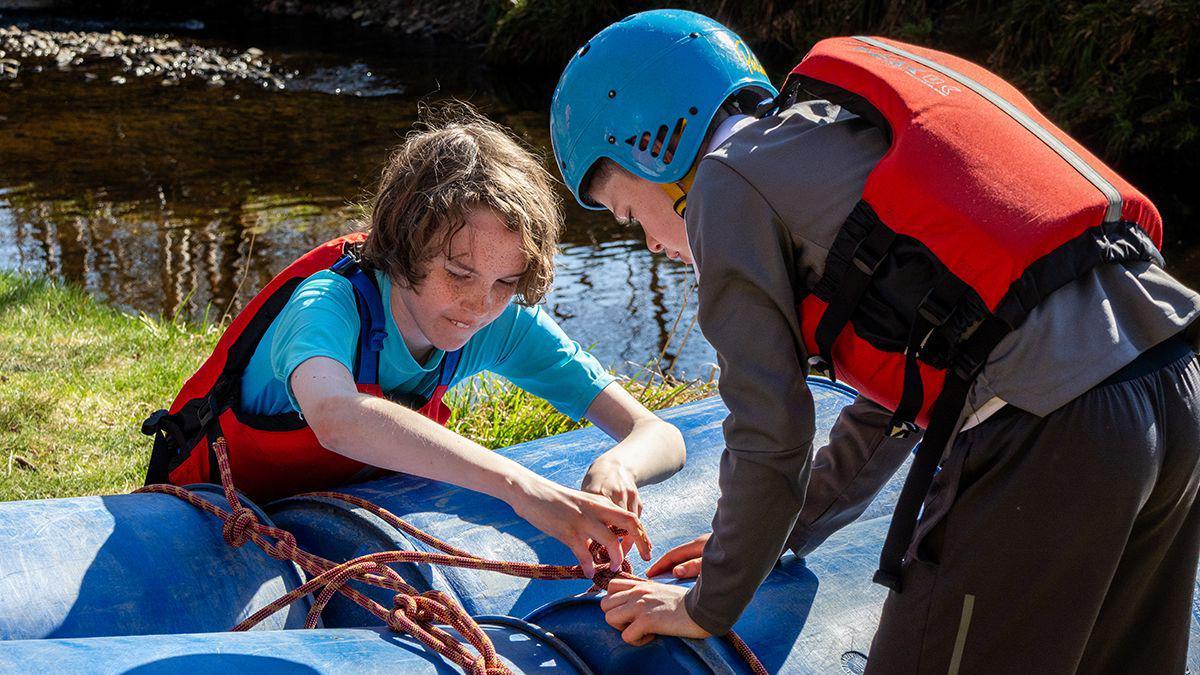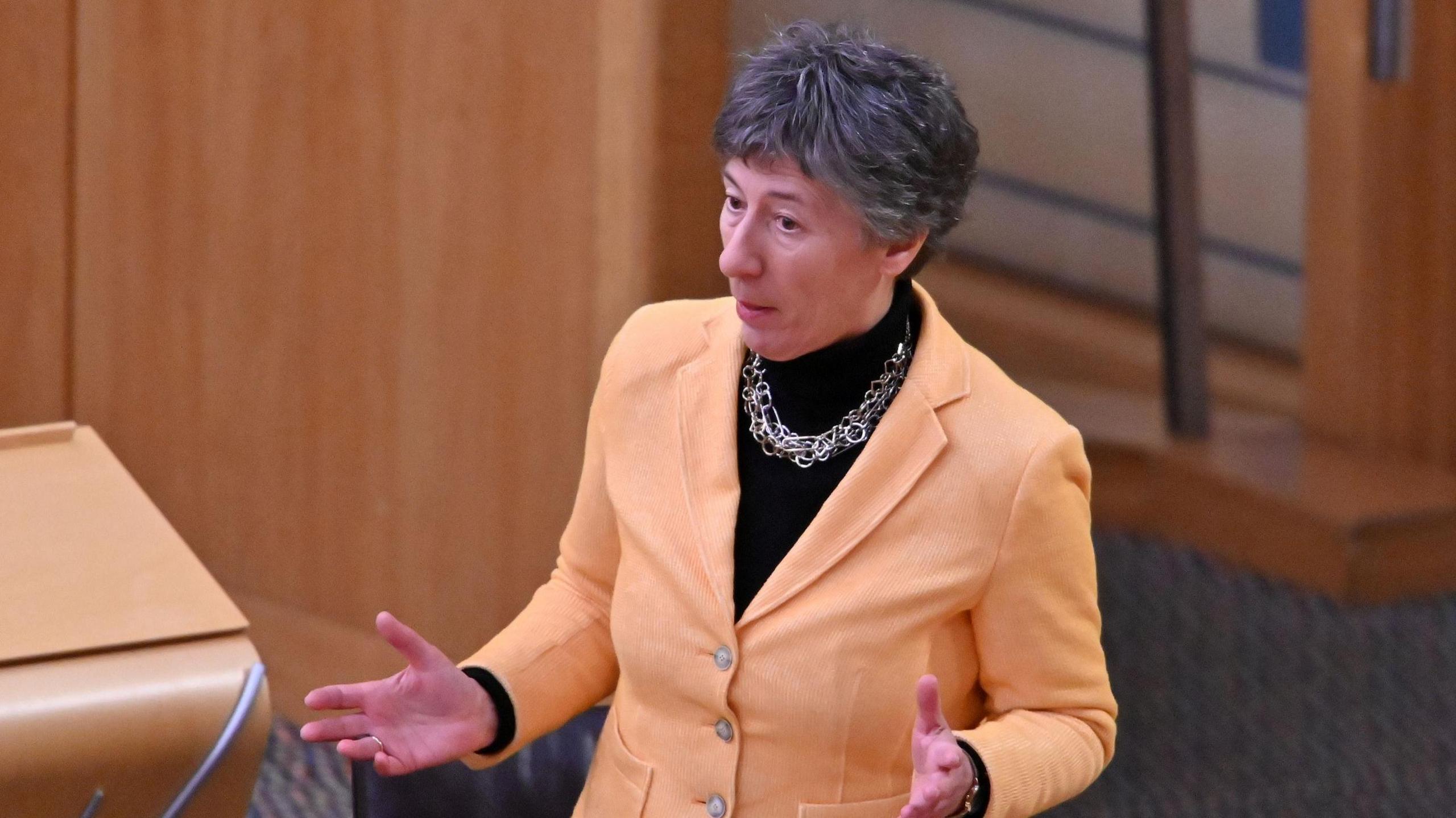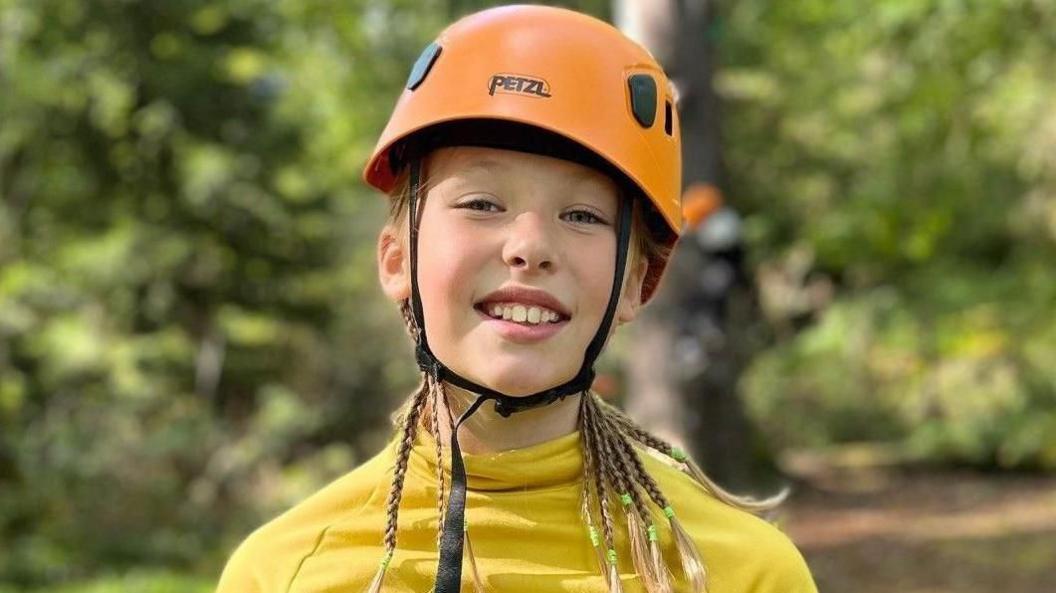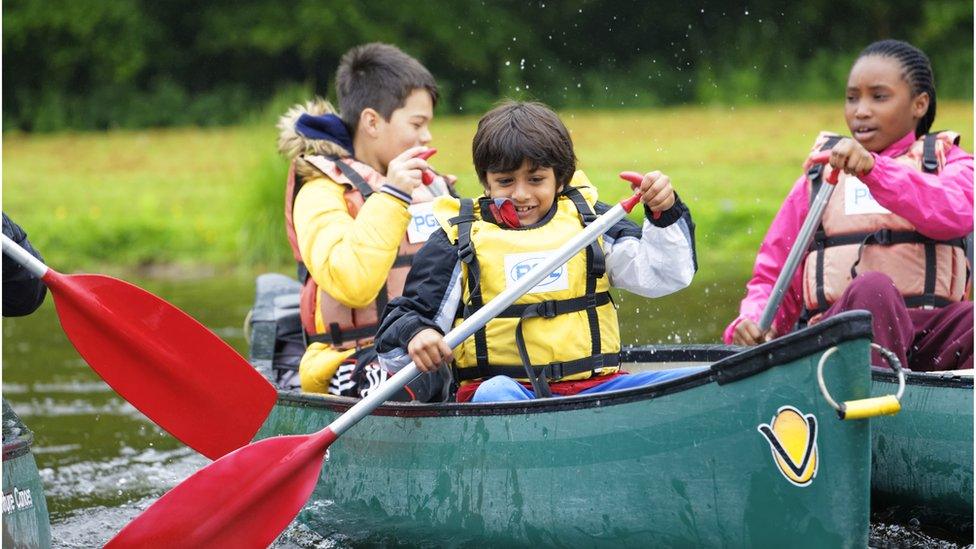Outdoor learning law for Scottish children to reach next stage

The law would guarantee every school pupil a week of residential outdoor learning
- Published
Scottish ministers have acted to ensure a proposed new law promising every school pupil in Scotland a week of outdoor learning can proceed at Holyrood.
The plans would entitle every pupil to four nights and five days of residential outdoor education.
The Schools (Residential Outdoor Education) (Scotland) bill, external was at risk of falling before reaching stage two unless the government tabled a financial resolution by the end of this week - which it has now done.
Children's minister Natalie Don-Innes, who originally said the proposals were unaffordable, said she accepted the will of parliament and would work to ensure the bill was deliverable.
She said amendments would be required to target the children who would benefit the most and to provide time for the outdoor education sector to prepare.
The education committee previously estimated that the bill could cost up to £40m to implement and Don-Innes said concerns around affordability still needed to be addressed.
The bill won majority support when it was first put forward by Conservative MSP Liz Smith six months ago.
But there had been concerns that the Scottish government was going to thwart the will of parliament.
Opposition politicians had warned that would be a democratic outrage.

Liz Smith tabled the bill which could cost between £25m and £40m a year
Don-Innes said the Scottish government "absolutely recognises the important role that outdoor learning in all its forms, including residential outdoor education, can play in supporting the development of our children and young people".
She added: "I am very aware there is still an awful lot of work to be done with the bill, but I think today is a very good news story for young people right across Scotland."
At stage two, any MSP can propose changes to a bill. These amendments are debated and later decided on by a committee.
It is expected that compromises will need to be made to the scope of the bill for it to become law.
Liz Smith said she welcomed what she called a "change of heart" by the SNP government.
She added: "Clearly, time is of the essence, so I'm keen that discussions on stage two amendments begin as soon as possible so that we can get this bill on the statute book before parliament is dissolved next spring.
"There is much work still to be done, but this is a good day for young people across Scotland. Residential outdoor education is rewarding and crucial to fostering confidence, resilience and team-building skills."
There is currently a postcode lottery in provision of residential outdoor education, with research for the University of Edinburgh stating that just a third of secondary schools and only a quarter of primary schools offer this type of experience.
Cuts in other activities
The minister for children previously told MSPs that ringfencing cash for outdoor education could be to the detriment of other activities.
Don-Innes added: "Where would you seek to cut funding from in education? Would it be our teachers, our schools, would it be nurseries or our colleges?"
The Association of Headteachers and Deputes in Scotland (AHDS) has concerns about the workability.
Greg Dempster, AHDS General Secretary, warned: "The bill appears to be founded on this statutory entitlement for pupils being delivered without change to terms and conditions for staff – this seems fanciful at best.
"Surveys from all teaching unions point towards excessive workloads and chronic underfunding for inclusion and ASN. "
He added that spending this much money on outdoor education would be "akin to suggesting buying new carpets while the roof is falling in."
The Convention of Scottish Local Authorities (Cosla) also raised concerns over the practicalities of the policy.
It questioned the impact on staffing, the costs of transport and what it would mean for schools' ability to take part in other trips relating to geography, history or the arts.
Related topics
- Published9 September

- Published13 April 2021
